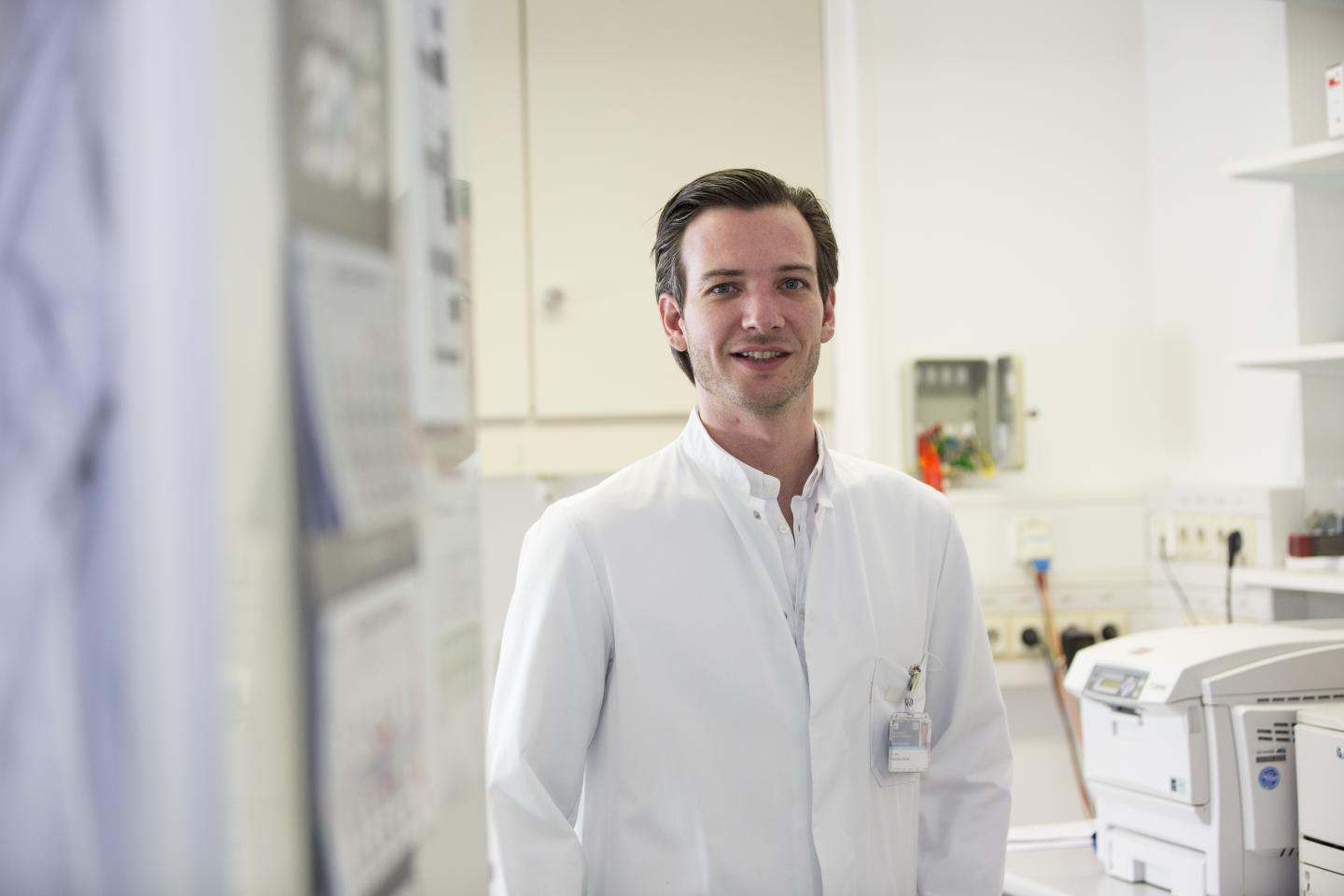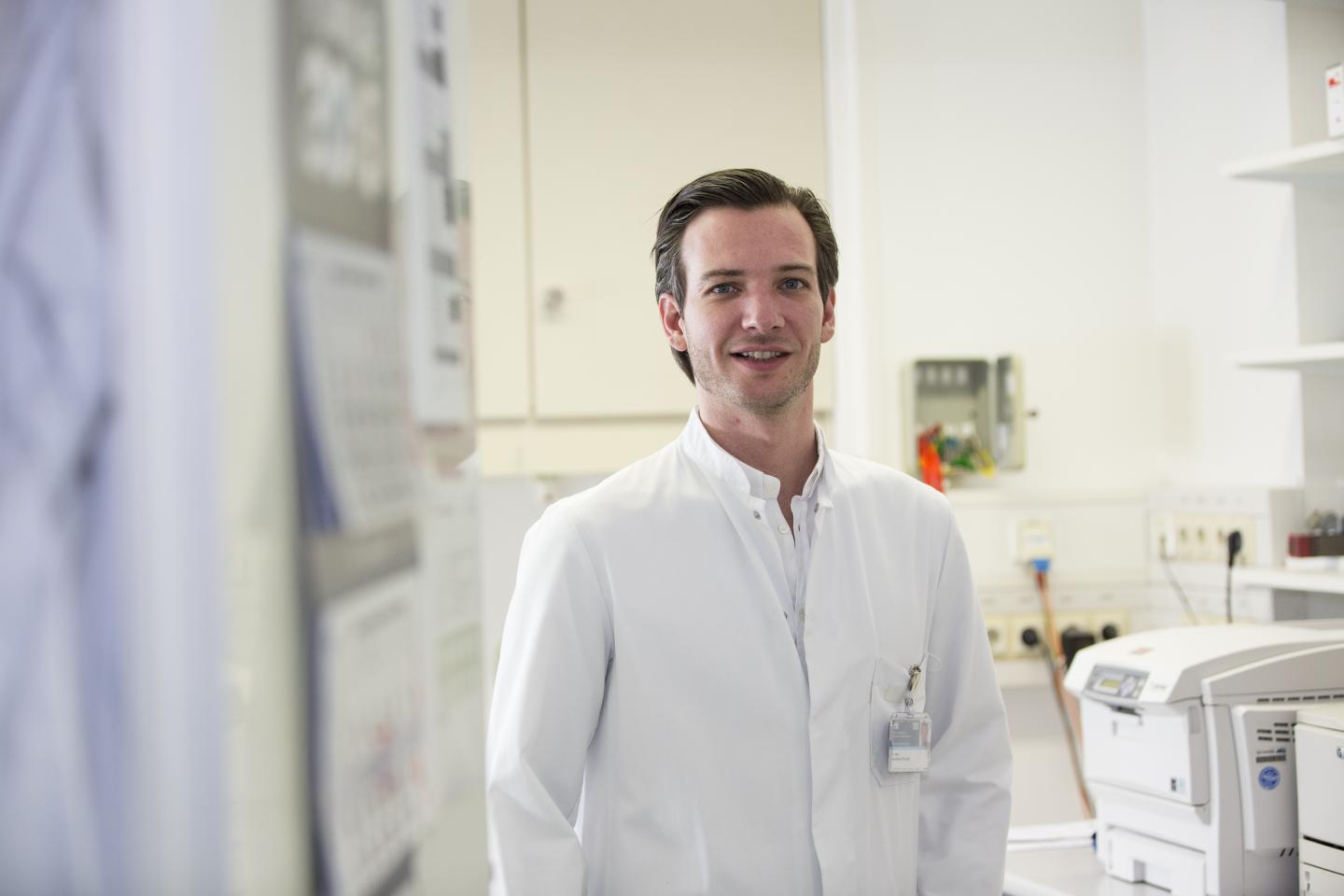
Credit: Sylvia Willax
Pancreatic cancer often spreads, forming metastases in the liver or lungs. The prognosis is better for patients with metastases in the lungs. However, the organ that is more likely to be affected depends on the cancer cells' ability to alter their characteristics and shape – as a research team at the Technical University of Munich (TUM) has discovered.
Cells in a tissue or tumor establish contacts with other cells and assume a scale-like appearance. Cancer cells that form metastases, however, must first alter their shape and characteristics. They have to modify their metabolism and detach themselves from the cluster of cells making up the tumor. As a result, they become long and thin, which allows them to enter nearby blood vessels. They then use the bloodstream as a transport route to reach other organs and proliferate in tissue there.
The cells must then transform themselves once again. They have to re-establish contacts with other cells in order to cling to them, so to speak. Not all cancer cells possess this flexibility, technically known as plasticity. Dr Maximilian Reichert, lead author of the new study and research group leader in the Internal Medicine Unit II of TUM university hospital Klinikum rechts der Isar, discovered why this is the case and what consequences it has for the spread of pancreatic cancer. The findings were published in the journal Developmental Cell.
Liver or lungs – what is the decisive factor?
"We were able to show that the spread of pancreatic cancer to the liver depends on the plasticity of the cancer cells. If the cells are unable to establish cell-to-cell contacts, they are passively flushed into the lungs by the bloodstream, where they become lodged," Reichert explains. "This course of the disease is more favorable for patients, because lung tumors are easier to control."
The plasticity of a cancer cell depends crucially on the presence of a cell adhesion molecule: the protein E-cadherin. Located on the cell surface, it is responsible for cell-to-cell contacts. Using a mouse model, the research team discovered that the absence of E-cadherin results in pancreatic cancer cells spreading to the lungs but not to the liver.
When the protein was present and functional, the cancer cells were also able to invade the liver. The researchers believe that this is because the cancer cells are able to take hold in liver tissue and to colonize the organ due to close cell-to-cell contacts established with the help of E-cadherin. By altering the presence of E-cadherin, the research team was able to control the metastasis process in mice.
Epigenetic factors as cause
The research team discovered that these mechanisms are evidently controlled in the tumor by epigenetic programs. In the process, the genetic material (DNA) itself is not altered. Instead, chemical factors determine how strongly or weakly a section of DNA is read.
Together with colleagues at Klinikum rechts der Isar, the team led by Maximilian Reichert plans to investigate whether these epigenetic programs can be inhibited or are suitable targets for treatment. "The more we understand about the formation of metastases, the better we'll be able to influence the process. This is particularly important in the case of pancreatic cancer, because nearly all pancreatic cancer patients die as a result of metastases," as Reichert states.
###
Publication:
Maximilian Reichert, Basil Bakir, Leticia Moreira, Jason R. Pitarresi, Karin Feldmann, Lauren Simon, Kensuke Suzuki, Ravikanth Maddipati, Andrew D. Rhim, Anna M. Schlitter, Mark Kriegsmann, Wilko Weichert, Matthias Wirth, Kathleen Schuck, Günter Schneider, Dieter Saur, Albert B. Reynolds, Andres J. Klein-Szanto, Burcin Pehlivanoglu, Bahar Memis, N. Volkan Adsay, Anil K. Rustgi, Regulation of Epithelial Plasticity Determines Metastatic Organotropism in Pancreatic Cancer, Developmental Cell Vol. 45 Iss. 6, June 18, 2018, DOI: 10.1016/j.devcel.2018.05.025
https://www.cell.com/developmental-cell/fulltext/S1534-5807(18)30418-0
Contact:
Dr. med. Maximilian Reichert
Clinic and Polyclinic for Internal Medicine II
Klinikum rechts der Isar of TUM
Tel.: +49 (0)?89 41?40?-?27?45
[email protected]
More Information:
Dr. Maximilian Reichert heads a Max Eder junior research group and is a member of the Modeling and Targeting of Pancreatic Cancer special research division (SFB1321, spokesperson: Professor Roland M. Schmid), which investigates, among other things, the clinical use of plasticity as a therapeutic target structure.
Profile of Maximilian Reichert
https://www.professoren.tum.de/en/tum-junior-fellows/r/reichert-maximilian/
Research Group of Maximilian Reichert
https://www.med2.mri.tum.de/en/research/ag-reichert.php
Clinic and Polyclinic for Internal Medicine II at TUM Klinikum rechts der Isar
https://www.med2.mri.tum.de/en/index.php
Media Contact
Vera Siegler
[email protected]
49-892-892-3325
@TU_Muenchen
http://www.tum.de
Original Source
https://www.tum.de/en/about-tum/news/press-releases/detail/article/34797/ http://dx.doi.org/10.1016/j.devcel.2018.05.025





